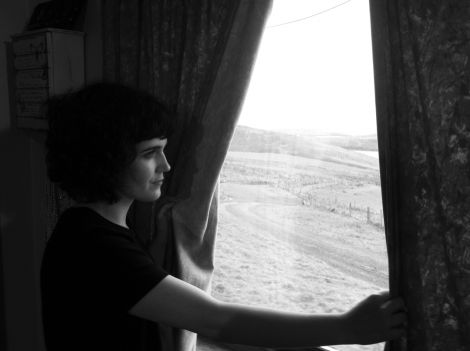Features / Screenplay’s subtle celebration of women in film
A SUBTLE celebration of women filmmakers and the female spirit was one of the many strengths of Screenplay 2014, writes Ria Moncrieff.
This became clear after attending one of a series of informative workshops and lectures provided. Linda Ruth Williams and Shelley Cobb launched their research project ‘Calling the Shots- Where (and Who) are the Women?’ by hosting a presentation and discussion to explain the aims of the four-year investigation of women in UK film culture from 2000-2015.
The presentation was illustrated with key clips from relevant films, statistics and insightful quotes from successful female filmmakers. It highlighted the low percentage involved in key roles of bestselling productions while also honouring the paradox that females are becoming better represented in certain roles, such as directing and writing, and have directed some of the most successful films in recent British cinema, such as ‘The Diary of Bridget Jones’ (Sharon Maguire) and ‘Mamma Mia’ (Phylidda Lloyd).
The pair said it was clear there is sufficient interest from women as film schools have many female students, but the representation dwindles as their career progresses. Likewise women don’t feel discriminated against as blatantly in their early careers or in short or independent films, but it becomes very apparent that there are gender differences later on in life, in certain genres, roles and within commercial cinema. Between 2010-12 there were no female cinematographers in top UK titles. Cobb urged the young female Maddrim Media and Edinburgh group SKAMM (Scottish Kids Are Making Movies) members of the audience to embrace the technical side.
This prompted an inner reflection of the film ‘We Are the Best’ which was screened earlier in the festival. Lukas Moodysson’s comic book adaptation is taken from his wife Coco’s autobiographical graphic novel ‘Never Goodnight’, which centres around three adolescent girls starting a female punk band in Stockholm during 1982. It follows the main protagonist, Bobo, and her fellow 13 year old friends Klara and Hedvig as they experience the trials and tribulations of teenage hood and embarking on a punk career – a predominantly male venture. Moodysson has captured his wife’s interpretation of her youth in a warmly insightful and comical manner. The teenagers’ determined spirit was infectious and perhaps Coco Moodysson retained it to embark on graphic novel writing, predominantly male also.
Become a member of Shetland News
Edinburgh based director Susan Kemp exhibits this kind of determination through ‘Nort Atlantic Drift’, her sensitive portrait of Shetland writer Robert Alan Jamieson which was screened at Glasgow Film Festival. It is based on Jamieson’s book of poetry of the same name and sees him giving beautiful lilting readings in dialect and in conversation with Kemp within the Sandness landscape and locations that shaped his childhood. This was especially poignant due to the timing of the filming, which took place one week after the poet’s father passed.
He admits while sitting in the kirk after reading ‘Metadist Metafir’, a light-hearted take on his childhood understanding of church teachings, that he is not religious but makes a touching tribute to his mother and Methodist upbringing in shaping his personality – giving a glimpse into a kind and caring character. This is highlighted by a moment in his brother’s shop, Jamieson’s of Shetland, which captures the writer’s local sense of ‘come in aboot’ as he invites inquisitive tourists in out-with opening hours, then proceeds to modestly give some historical information on Shetland knitwear. Kemp captured such scenes with a thoughtful understanding of her subject’s personality and humour.
The film included striking landscapes and creatively composed interior shots that gave a real sense of the rugged and simple beauty of the location. During the Q&A Kemp joked that it was a one-woman production – impressively she had filled the roles of producer, director, cinematographer, co-editor and soundtrack coordinator.
Williams and Cobb aim to explore issues of imbalance in their research and address questions on the challenges female filmmakers face, whether they tell distinct stories and how more employment of women in key roles can be achieved. The BFI has no diversity agenda but this is under review. Cobb suggested this may be a necessary step to ensure better representation.
A panel discussion followed with Clio Barnard and Joanna Hogg – both experienced, award winning directors whose films featured at Screenplay. The discussion that ensued was fascinating as it provided first hand experiences of the positives and negatives. Hogg very honestly admitted she had unpleasant experiences rooted in misogynistic behaviour common in the industry. At times, she was close to giving up but battled through, to great success.
Barnard admitted she wasn’t consciously aware of gender issues but blinkers may have carried her. She commented on how being a parent can cause challenges but can also be a credit to creativity and flexibility. ‘Selfish Giant’ (also shown at Screenplay) was produced while Barnard and another female in a key role had young children, meaning the schedule was geared around that.
Barnard’s film ‘The Arbor’ left a distinct impression earlier in the festival. It tells the devastating story of playwright Andrea Dunbar and her family through part-documentary, part-drama. The voices were taken from recorded interviews of family and people who knew her, predominately focusing on her daughter Lorraine who also followed a self destructive path, and were edited into a screenplay then lip synched by actors. This is a clever technique that allows Barnard to retain the genuine voices and raw emotions of the individuals while also protecting their privacy and allowing the directing and cinematography to be creative.
Another effective technique was the inclusion of scenes from Dunbar’s play being performed and filmed on the estate, with what looked like a genuine audience gathering. Barnard intelligently set the dramatic scenes in the writer’s family environment while simultaneously giving us a glimpse into her writing and themes.
‘The Arbor’ is heavy going, with graphic descriptions and extreme emotional content. Perhaps there could have been room for lighter shades but this may be a device itself. Barnard provides a creative portrayal of the impossible struggles women, mothers and children can face growing up and trying to survive in poverty and addiction.
At the research discussion Mark Kermode pointed out that one particular female director had made the assertion that the unsociable hours of the filmmaking world was a myth and created to limit female contribution. She believed there was no reason why women couldn’t work on films from 9-5 or when suited their needs. This appeared to be a revelation for some audience and panel members.
Norina Mackey was also present and clearly aware of the gender imbalances in filmmaking but has paved a successful career in the industry as a writer with films such as ‘Killer Heels’, shown at Marbella International Film Festival, and ‘1 Way Up’, produced by Academy Award Winners. Earlier in the week she held an informative and insightful screenwriting seminar. Mackey was very generous with her knowledge and gave excellent examples of the various screenwriting stages from hugely successful films such as ‘Saving Mr Banks’, ‘Elf’ and ‘Charlie’s Angels’.
There were around 12 Shetland-based attendees from a range of backgrounds – including teaching, media, filmmaking, photography, writing and studying – all with an interest in filmmaking. It was encouraging to see that half of the group were female. Shetland women reprezent.
The presence of local films in Screenplay was hugely promising and inspiring. Local productions Ebb Tide, ‘Dis Quiet’, Home Made and ‘Trou’ all included Shetland women. However, as with the UK trend, there are very few females involved in the technical side. Floortje Robertson and myself were both part of Ebb Tide but, as fellow Ebb Tider Harry Whitham pointed out, we were both paired with men in order to experience the more technical aspects of filmmaking. This was hugely beneficial and an excellent opportunity. Maddrim Media do a fantastic job in providing experience and training for young lasses. There is an interest in film, writing and directing from creative Shetland women that will no doubt be developed – perhaps they would also embrace technical training opportunities.
Ria Moncrieff
Become a member of Shetland News
Shetland News is asking its many readers to consider paying for membership to get additional features and services: -
- Remove non-local ads;
- Bookmark posts to read later;
- Exclusive curated weekly newsletter;
- Hide membership messages;
- Comments open for discussion.
If you appreciate what we do and feel strongly about impartial local journalism, then please become a member of Shetland News by either making a single payment, or setting up a monthly, quarterly or yearly subscription.






























































